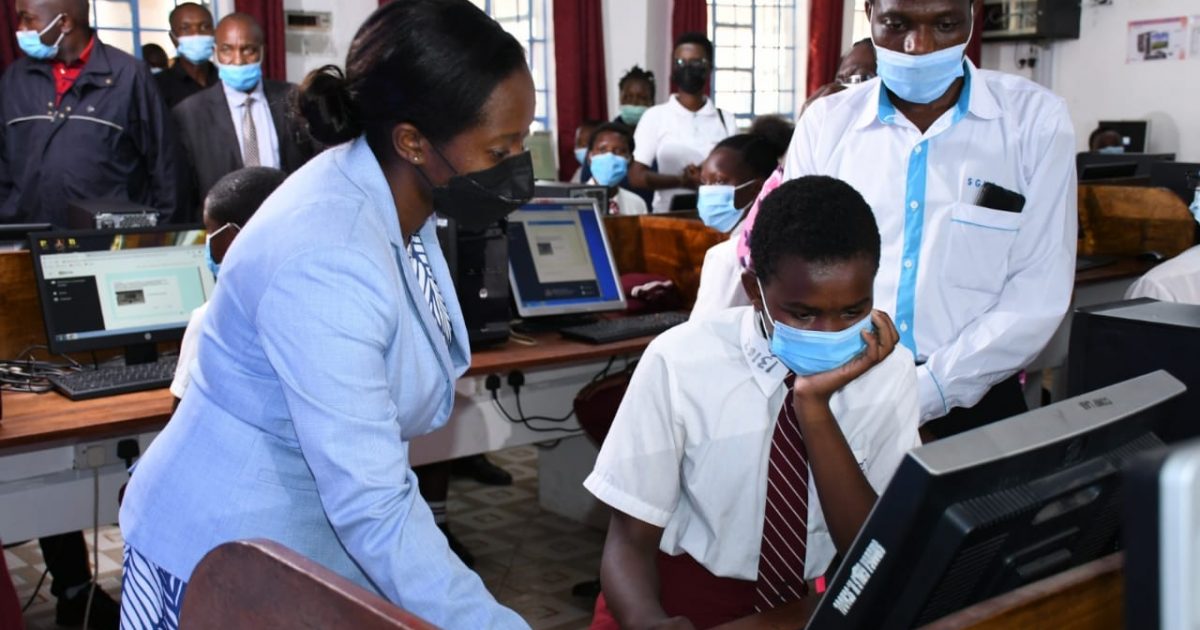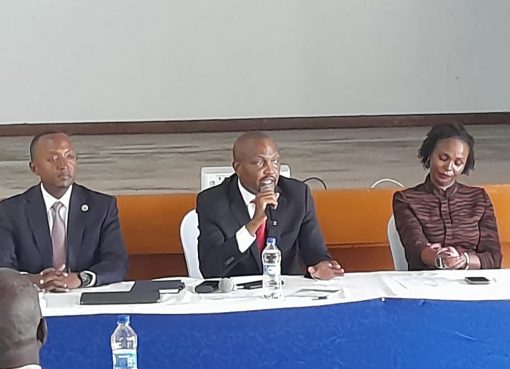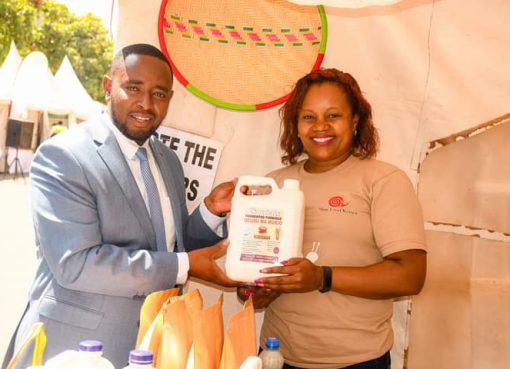The launch of the ‘schoolnet connectivity’ programme in primary and secondary schools in Kenya, is projected to immensely boost learners’ digital and innovation skills.
Chief Administrative Secretary (CAS), Ministry of ICT, Innovation and Youth affairs, Maureen Mbaka, while launching the ‘schoolnet connectivity’ programme in Sironga Girls Secondary and Primary Schools in Nyamira County, affirmed that internet connectivity to learning institutions offers learners unlimited opportunities to access sources of authentic knowledge for use both in and out of class.
“The entire world is going digital and we cannot afford to remain behind as Kenyans because it will unfortunately be to our detriment. The reason why government has purposed to heavily invest in technological infrastructure and connectivity, is to be able to expose young learners to the realities of technology in their day to day lives. This is a training which will be relevant in making them digitally compliant learners and enable them comfortably fit in the digital economy once they are done with their studies,” CAS stated.
She pointed out that indefinite closure of schools for over eight (8) months in the wake of Covid-19 pandemic never interrupted learning and syllabus coverage for schools which had invested in technology infrastructure and connectivity.
Ms. Mbaka noted that learners equally needed digital skills to enable them maneuver through virtually taught classes, including doing class assignments and taking Continuous Assessment Tests (CATS).
This scenario, she said, caught most public schools off-gourd because they were unprepared for this unprecedented turn of events.
“It is crucial to prepare our young generation in this country for the digital world ahead of them, for easy transition from being students to workers because it will definitely affect how they will work, access services, create business linkages and networks, market their innovations and creative skills to make decent livelihoods, all in an effort to create an all-inclusive digital economy,” Ms. Mbaka said.
The Deputy Director, Information Communication Technology Authority (ICTA), Philip Irode said that the School’s digital devices, are protected from accessing unsafe content before learners are allowed to use them to access the internet, by installing firewall devices and that content accessed is safe from internet hostilities such as cybercrime and cyber bullying.
“Digital skills are important to learners because they are exposed to digital spaces early and gives them full opportunity to explore their innovative and creative skills, courtesy of technology, the reason why internet connectivity to schools is fast becoming a basic requirement for any school to operate efficiently,” Mr. Irode said.
Jael Moraa, a student at Sironga Girls High School, taking computer studies as one of her subjects, acknowledged that internet has exposed her to a huge library of academic reading materials, just at the click of a button, which could take her several days to access or at worst not access such information at all because physical books have their limitations.
“Access to unrestricted free internet is likely to entice many young learners to drift to unsafe online social sites, which will slowly but surely drift them off their main focus of concentrating on their academic studies, I, therefore, appeal for high self-discipline and self-regulation because after we all need the excellent grades to enable us pursue future dream careers,” she advised fellow students.
The CAS confirmed that government has put in place various laws and regulations pertaining to use of digital spaces, some of which include data protection laws, cyber security laws, computer misuse and cybercrime laws, child online protection laws, which enables prosecutors expedite cybercrimes matters in court for justice to be served in record time.
“This launch is the pilot phase of the ‘schoolnet connectivity’ programme, where 13 schools countrywide have been selected for the pilot as part of the initiative where Sirongs Girls secondary and Primary schools were selected for this pilot with an assurance that this programme will later be fully up-scaled to cover all school in the entire country,” Ms. Mbaka explained.
She thanked all the like- minded partners including the Ministry of Education (MOE) for supporting online learning and coordinating school activities, ICT Authority for providing connectivity through the NOFBI fiber networks, UNESCO for providing the monitoring and evaluation plan and tools and HUAWEI for providing funds for equipment, installation and perpetual licenses at the same time offer technical assessment support all in ensuring that ‘schoolnet connectivity’ programme comes to fruition.
Sironga Girls Secondary School, Chief Principal, Eva Odhiambo, was very grateful to the government and other partners for considering their school for the pilot phase of the ‘schoolnet connectivity’ initiative and promised that the school administration will do their best in digitally equipping the girls, to ensure they remain relevant in the digital world, even after clearing studies at the School.
By Deborah Bochere




